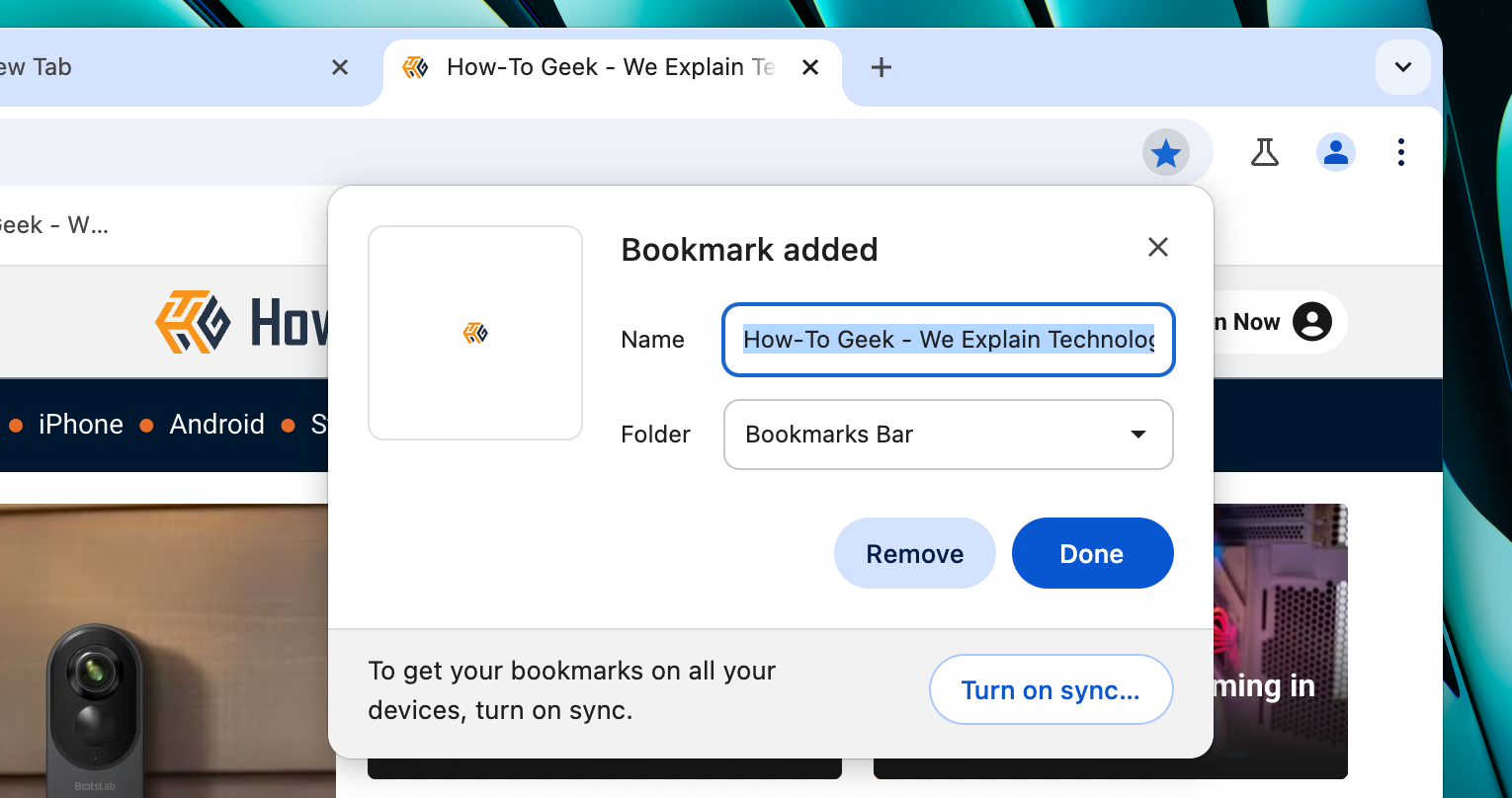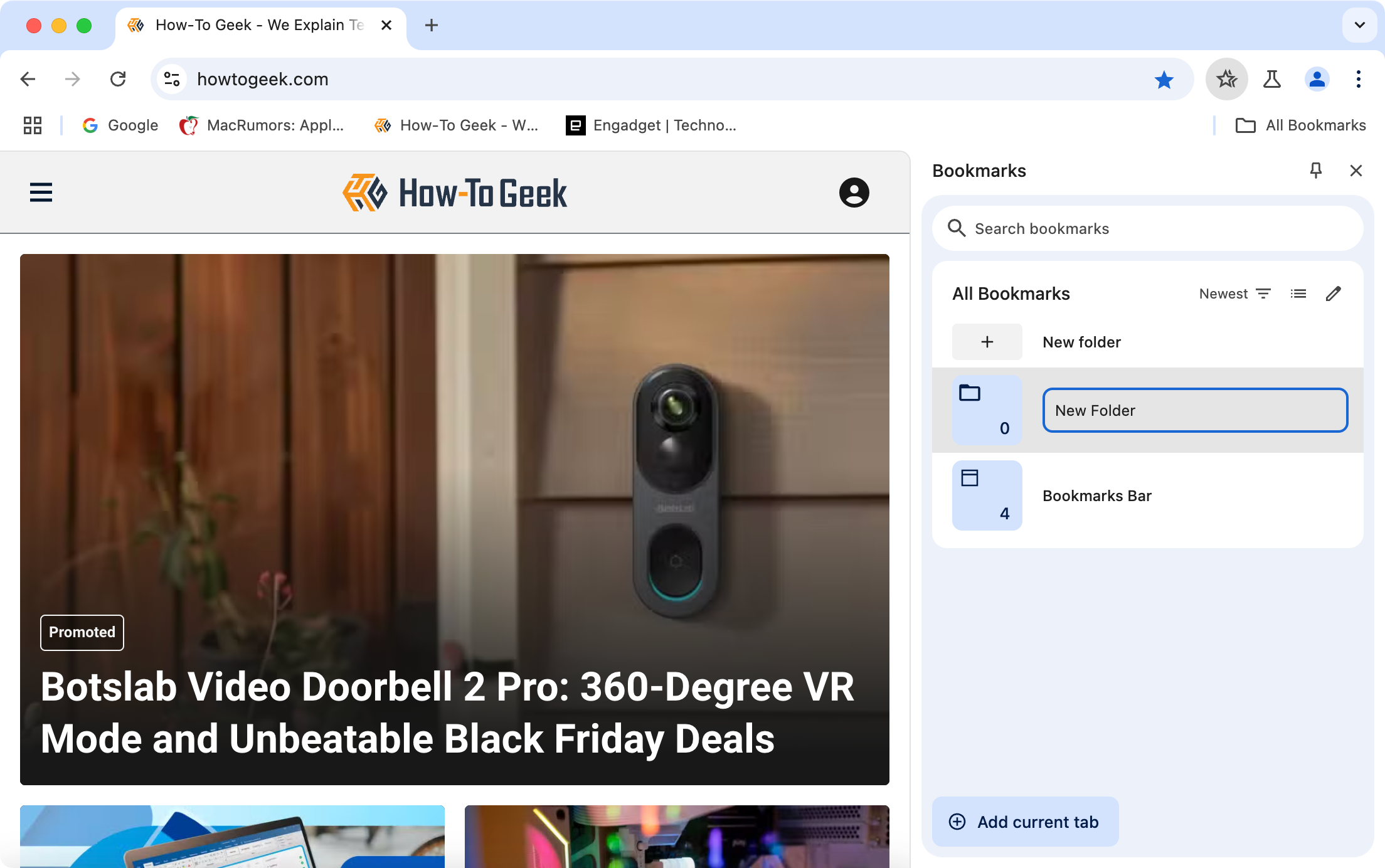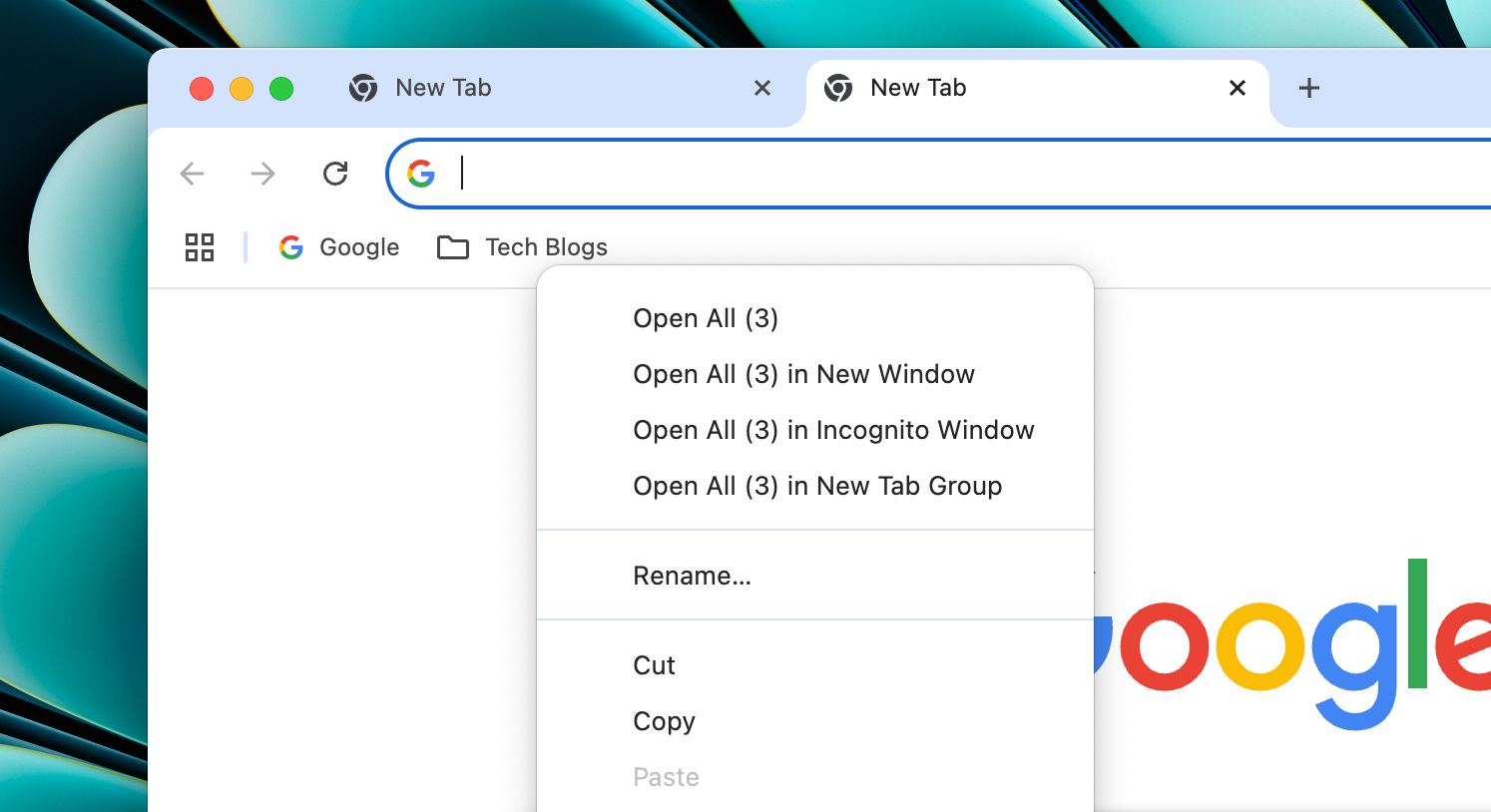Browser tabs and windows are supposed to be pages you are actively using, not pages you saved several days (or weeks, or months) ago and might need again. If you’re piling up browser tabs, using bookmarks could give you a productivity and organizational boost.
There’s not a significant performance penalty to having dozens (or hundreds) of browser tabs open on your computer or phone, as all modern desktop browsers now have some form of sleeping tabs enabled by default, and most mobile browsers shut down background tabs pretty quickly. Still, having lots of tabs open makes it harder to find the ones you actually need, unless you use other tools like tab grouping or tab search.
Ditch the Tabs
It’s true you can use tabs as a way to save pages you might need later, but they’re not intended for that purpose. You have to keep them open somewhere at all times, and if your actively-used tabs are in the same windows as your old tabs, switching between them can be an annoying time drain. Web browsers have implemented tab groups, memory saver modes, and tab searches as partial workarounds, but they don’t solve the core problem.
The best way to save pages you might need later is with bookmarks, or ‘favorites’ as Microsoft Edge calls them. In every web browser, you can click a button to save the current page as a bookmark—it’s the star button in the address bar in Firefox and Chrome, and one of the options in the Share menu in Safari. Some browsers save bookmarks to the bookmarks bar by default, but others might put them in other folders.
You can find the bookmark later by searching for it in the address bar, clicking it in the bookmarks bar (if it’s there), or finding it in the bookmarks manager. You can get to the bookmarks manager in Chrome by clicking the main menu button, then navigating to Bookmarks and Lists > Bookmarks Manager. In Firefox, click the main menu button and select Bookmarks > Manage bookmarks. In Safari, click Bookmarks in the menu bar and select Show Bookmarks.
The bookmarks manager or main bookmarks list can help you organize everything into folders. In most browsers, the bookmarks bar appears as a folder in this interface, so you can move pages in and out of there. I personally organize bookmarks around projects and common themes—I have a “HTG” folder with all my links for writing at How-To Geek, a “Life” folder for bank accounts, insurance and utilities portals, and so on.
If you keep your bookmarks organized and keep your most-used links in the bookmarks bar for quick access, it will be a lot easier to find the pages you need without scrolling through tabs constantly. Keep the tabs for what you’re actively reading or working on and save everything else as a bookmark.
Power Up Your Bookmarks
There are a few key advantages to using bookmarks over piles of tabs, besides just better organization. You can rename bookmarks to something besides the original page title, which is handy for web pages with confusing titles and generic icons. Some web browsers also allow you to add tags to bookmarks that are also searchable.
Most desktop browsers also let you set the bookmarks bar to be always visible, so you can set pages in the bar to be one-click shortcuts—even faster than scrolling through tabs. In Chrome, right-click the bookmarks bar in the New Tab Page, and select Show Bookmarks Bar. In Firefox, right-click on an empty space in the toolbar or bookmarks bar and select Bookmarks Toolbar > Always Show.
If you place similar bookmarks in a folder, you can right-click the folder for the option to open all bookmarks at once in their own tabs. For example, if there are five news sites you want to check each morning, you could put all of them in a folder and use that option to set up your morning reading list of five tabs.
Bookmarks are also easy to copy and move between web browsers, much more so than tabs. Chrome, Firefox, and other browsers allow you to export your bookmarks to an HTML file, which can then be imported into other browsers (or just saved as a backup).
No matter how you use bookmarks, they’re a better system than piles of tabs.







